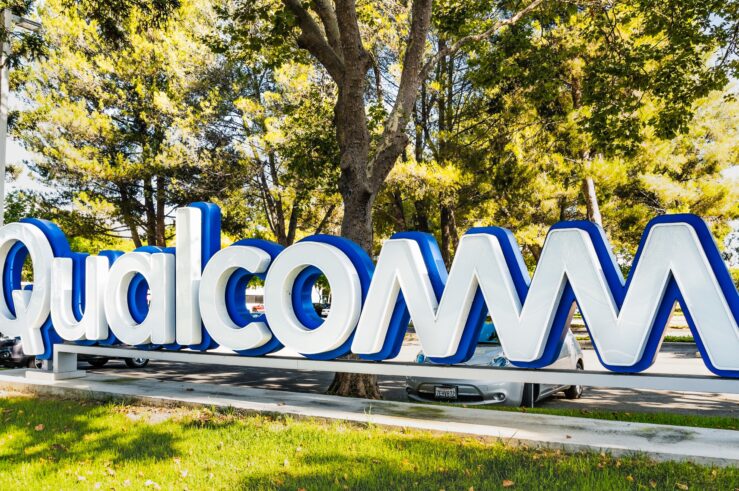Showing results for: “price gouging”
The Forgotten Virtues of Doing Nothing
This guest post is by Jonathan M. Barnett, Torrey H. Webb Professor Law, University of Southern California Gould School of Law. It has become virtual received wisdom that antitrust law has been subdued by economic analysis into a state of chronic underenforcement. Following this line of thinking, many commentators applauded the Antitrust Division’s unsuccessful campaign ... The Forgotten Virtues of Doing Nothing
Rising Concentration, Rising Prices: Not So Fast
Wall Street Journal commentator, Greg Ip, reviews Thomas Philippon’s forthcoming book, The Great Reversal: How America Gave Up On Free Markets. Ip describes a “growing mountain” of research on industry concentration in the U.S. and reports that Philippon concludes competition has declined over time, harming U.S. consumers. In one example, Philippon points to air travel. ... Rising Concentration, Rising Prices: Not So Fast
Does Apple’s “Discrimination” Against Rival Apps in the App Store harm Consumers?
A spate of recent newspaper investigations and commentary have focused on Apple allegedly discriminating against rivals in the App Store. The underlying assumption is that Apple, as a vertically integrated entity that operates both a platform for third-party apps and also makes it own apps, is acting nefariously whenever it “discriminates” against rival apps through ... Does Apple’s “Discrimination” Against Rival Apps in the App Store harm Consumers?
Why Data Is Not the New Oil
“Data is the new oil,” said Jaron Lanier in a recent op-ed for The New York Times. Lanier’s use of this metaphor is only the latest instance of what has become the dumbest meme in tech policy. As the digital economy becomes more prominent in our lives, it is not unreasonable to seek to understand ... Why Data Is Not the New Oil
Any Way You Measure It, Warren Is Wrong to Claim “Facebook and Google Account for 70% of All Internet Traffic”
When she rolled out her plan to break up Big Tech, Elizabeth Warren paid for ads (like the one shown above) claiming that “Facebook and Google account for 70% of all internet traffic.” This statistic has since been repeated in various forms by Rolling Stone, Vox, National Review, and Washingtonian. In my last post, I ... Any Way You Measure It, Warren Is Wrong to Claim “Facebook and Google Account for 70% of All Internet Traffic”
The Real Story about Amazon, Counterfeit Listings, and Minimum Advertised Price (MAP) Policies
These days, lacking a coherent legal theory presents no challenge to the would-be antitrust crusader. In a previous post, we noted how Shaoul Sussman’s predatory pricing claims against Amazon lacked a serious legal foundation. Sussman has returned with a new post, trying to build out his fledgling theory, but fares little better under even casual ... The Real Story about Amazon, Counterfeit Listings, and Minimum Advertised Price (MAP) Policies
Kochland: An Inadvertent Paean to the Glories of the Free Market
A recently published book, “Kochland – The Secret History of Koch Industries and Corporate Power in America” by Christopher Leonard, presents a gripping account of relentless innovation and the power of the entrepreneur to overcome adversity in pursuit of delivering superior goods and services to the market while also reaping impressive profits. It’s truly an ... Kochland: An Inadvertent Paean to the Glories of the Free Market
The District Court’s FTC v. Qualcomm Decision Rests on Impermissible Inferences and Should Be Reversed
Last week the International Center for Law & Economics (ICLE) and twelve noted law and economics scholars filed an amicus brief in the Ninth Circuit in FTC v. Qualcomm, in support of appellant (Qualcomm) and urging reversal of the district court’s decision. The brief was authored by Geoffrey A. Manne, President & founder of ICLE, and ... The District Court’s FTC v. Qualcomm Decision Rests on Impermissible Inferences and Should Be Reversed
In FTC v. Qualcomm, Judge Koh Gets Lost in the Weeds
In his latest book, Tyler Cowen calls big business an “American anti-hero”. Cowen argues that the growing animosity towards successful technology firms is to a large extent unwarranted. After all, these companies have generated tremendous prosperity and jobs. Though it is less known to the public than its Silicon Valley counterparts, Qualcomm perfectly fits the ... In FTC v. Qualcomm, Judge Koh Gets Lost in the Weeds
A Regulatory Failure of Imagination
Underpinning many policy disputes is a frequently rehearsed conflict of visions: Should we experiment with policies that are likely to lead to superior, but unknown, solutions, or should we should stick to well-worn policies, regardless of how poorly they fit current circumstances? This conflict is clearly visible in the debate over whether DOJ should continue ... A Regulatory Failure of Imagination
Why Don’t People Talk About Breaking Up Microsoft?
[This post is the seventh in an ongoing symposium on “Should We Break Up Big Tech?” that features analysis and opinion from various perspectives.] [This post is authored by Alec Stapp, Research Fellow at the International Center for Law & Economics] Should we break up Microsoft? In all the talk of breaking up “Big Tech,” ... Why Don’t People Talk About Breaking Up Microsoft?
Municipal Revenue Extraction Should Not Stand in the Way of Next Generation Broadband
Advanced broadband networks, including 5G, fiber, and high speed cable, are hot topics, but little attention is paid to the critical investments in infrastructure necessary to make these networks a reality. Each type of network has its own unique set of challenges to solve, both technically and legally. Advanced broadband delivered over cable systems, for ... Municipal Revenue Extraction Should Not Stand in the Way of Next Generation Broadband






